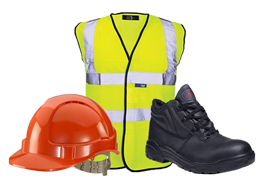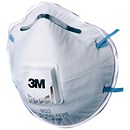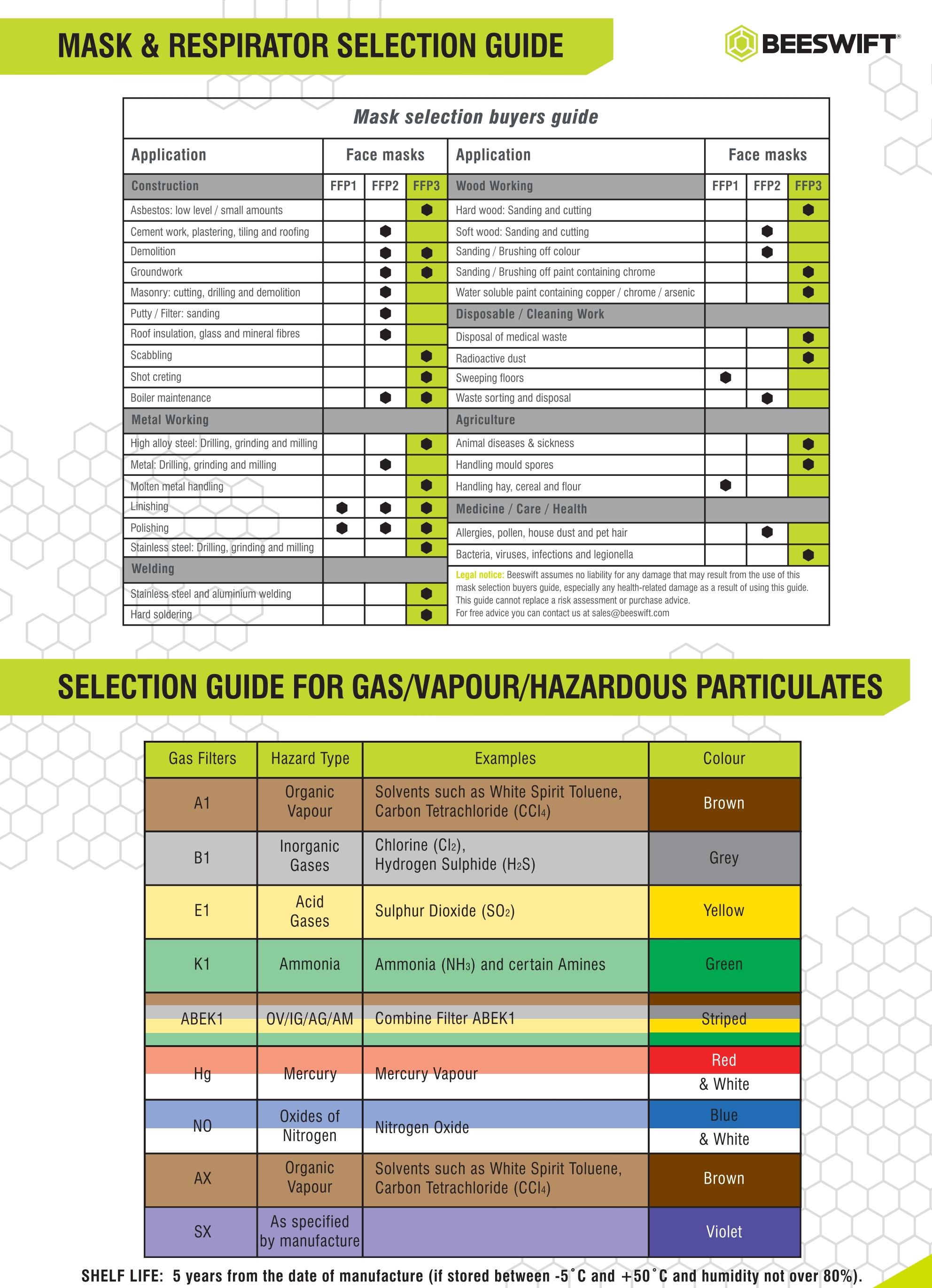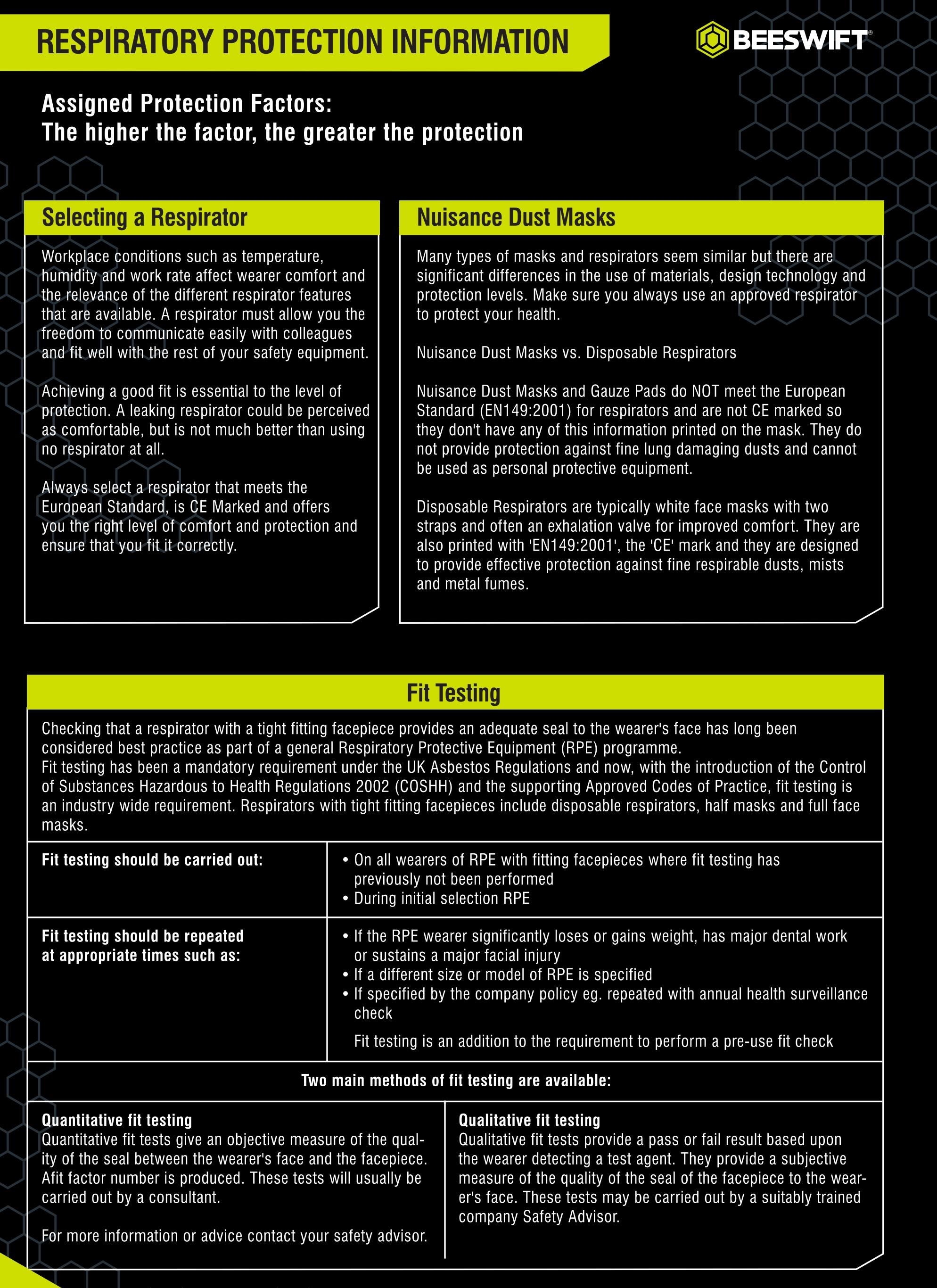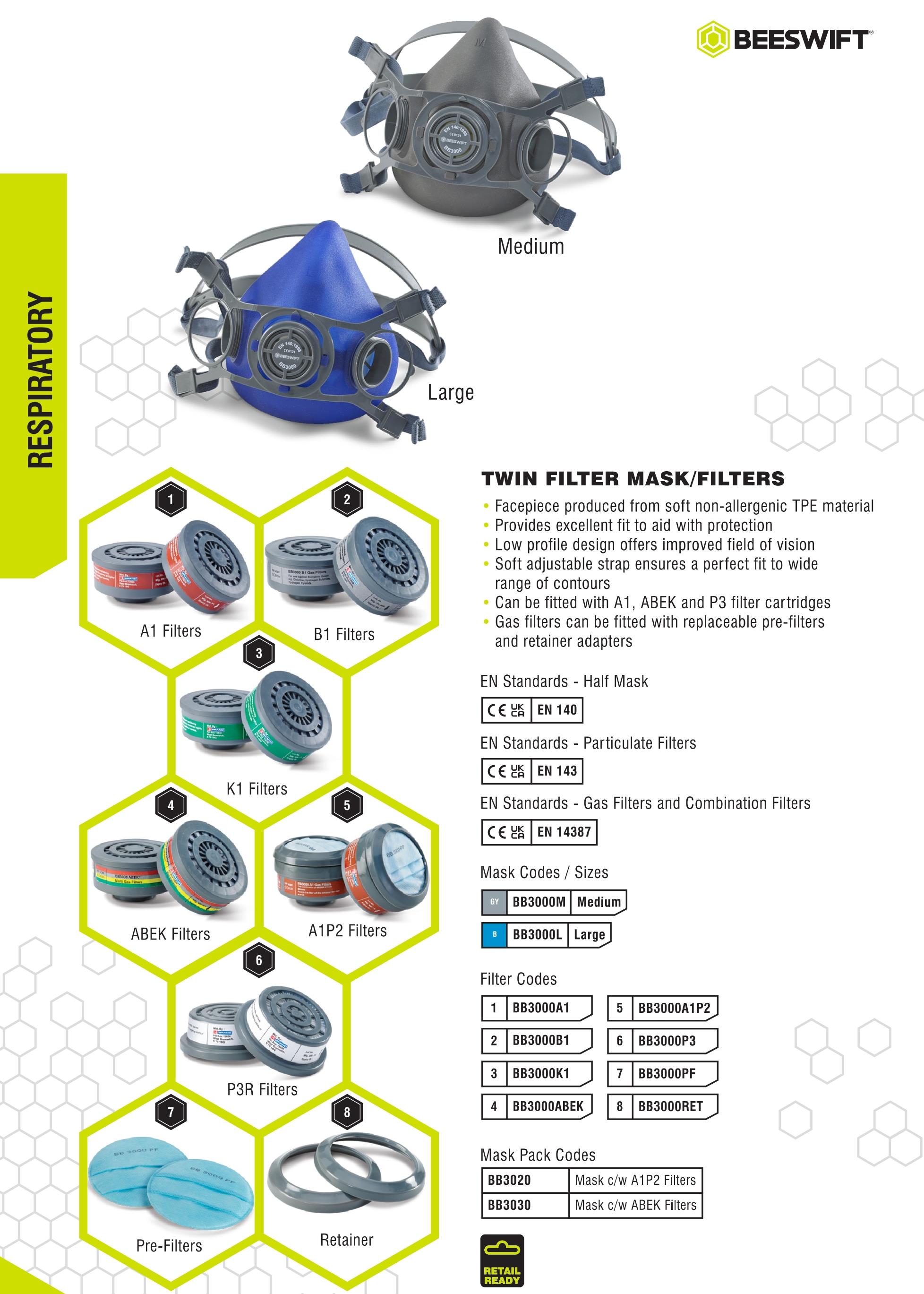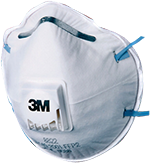
A dust mask or respirator is a mask worn over the mouth and nose to protect the wearer against the inhalation of dusk and other harmful particulates. This dust mask acts as a filter as the wearer breathes, the filter material porous enough to allow air to pass but not bigger particles. The mask may have a valve. Respirators are worn by, among others, people working in dusty environments (e.g. when sanding) and also by cyclists wishing to minimise the airborne pollutants from motor vehicles they might inhale on roads.
Dust masks are essential wear for workers installing fibreglass and offer protection when sanding and working with power tools, particularly on surfaces coated with dried paint where the dust formed may be toxic. Dust masks are commonly worn in agriculture as well where workers may come into contact with germs and spores, as well as pesticides and fertilisers.
When purchasing dust masks and respirators for the workplace in the UK, consider the following key factors. First, check for compliance with British standards, ensuring they meet EN 149:2001+A1:2009 for FFP (Filtering Facepiece Particle) masks or EN 140:1998 and EN 143:2000 for respirators. Assess the level of protection needed; FFP1 for low-risk environments, FFP2 for moderate, and FFP3 for high-risk. Fit and comfort are crucial, so choose masks with adjustable straps and a secure seal. Opt for masks with exhalation valves for reduced heat and moisture buildup. Finally, ensure proper training and fit testing for workers.
If you are unsure about anything, don't hesitate to call us on 0345 567 4000. If we can't answer your question, we can at least point you in the direction of someone who can.
